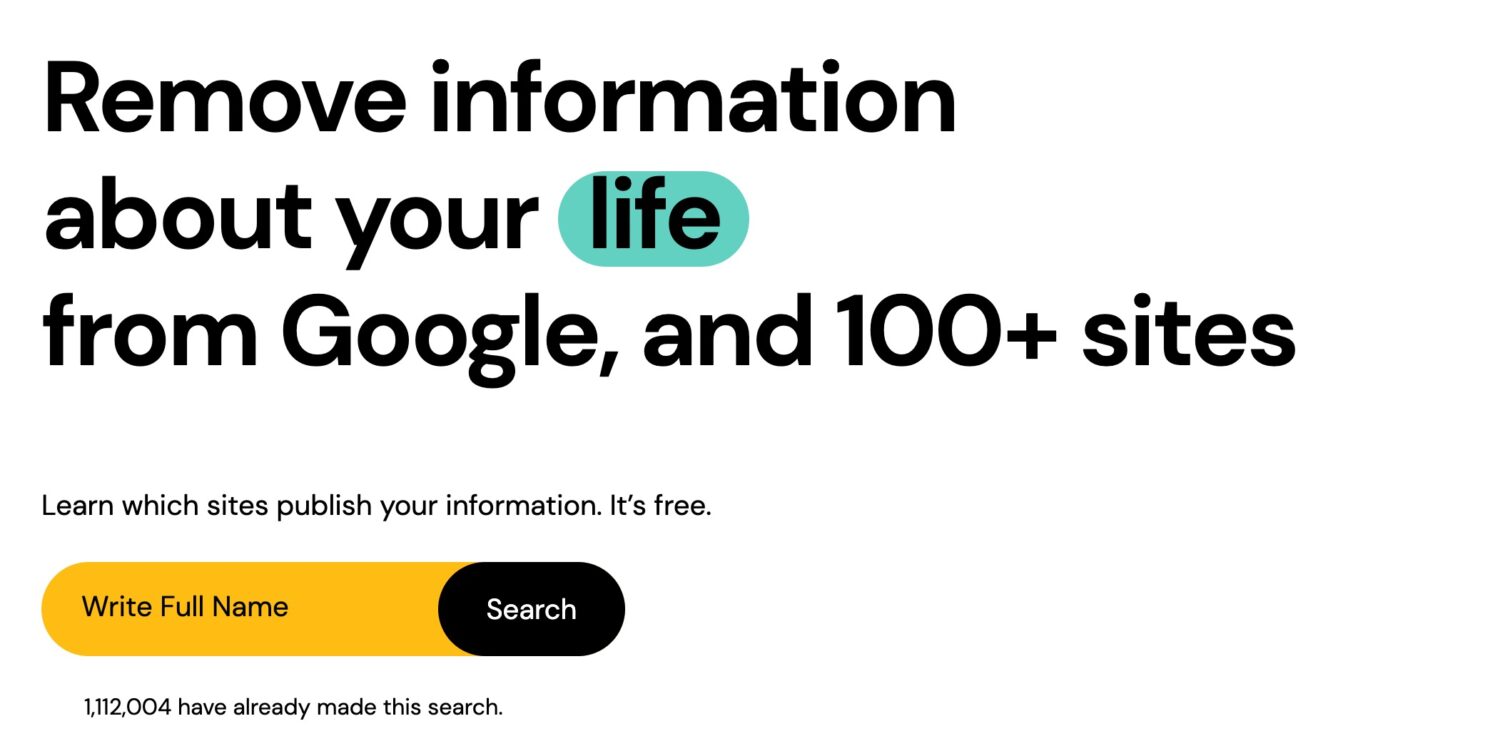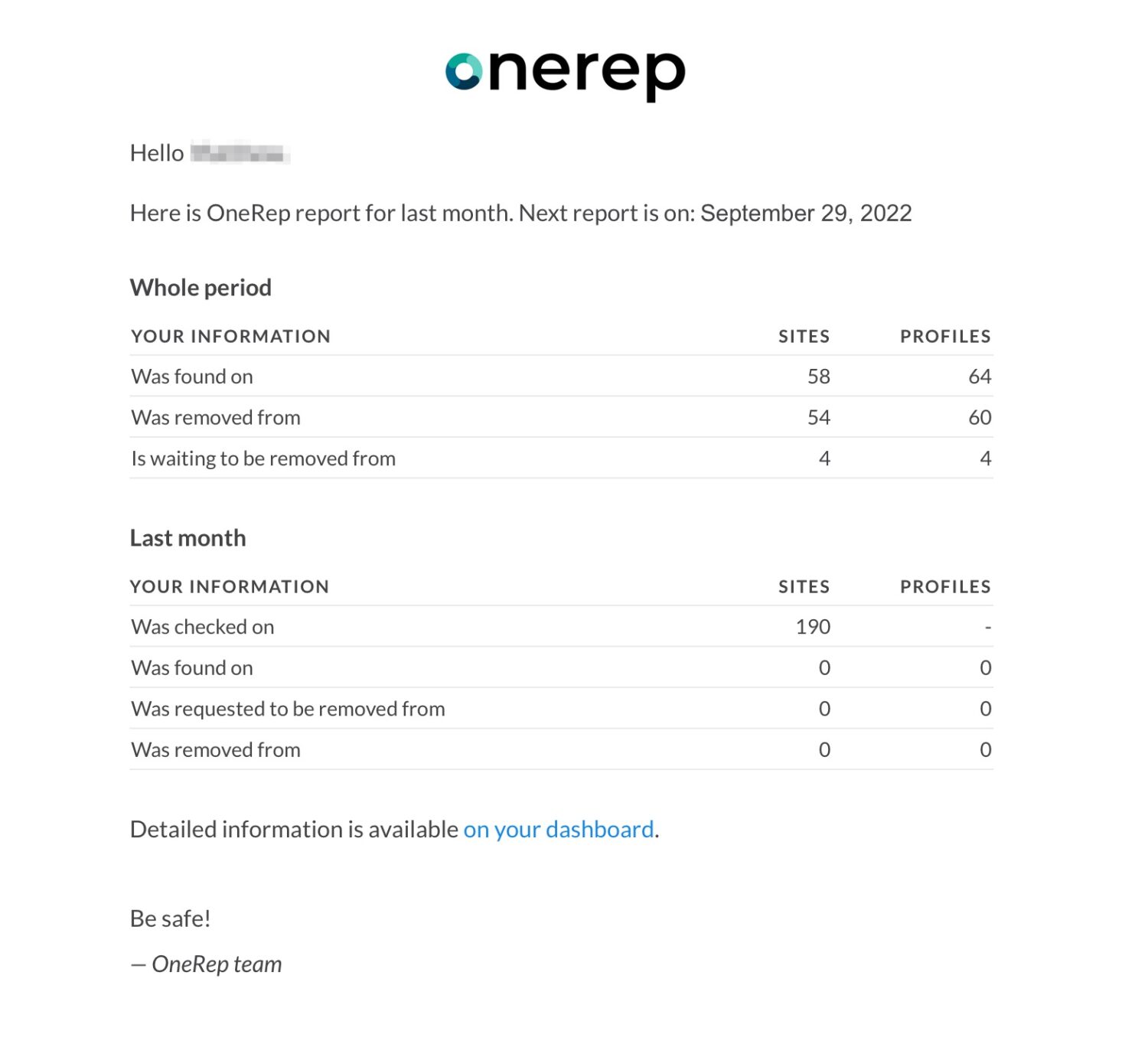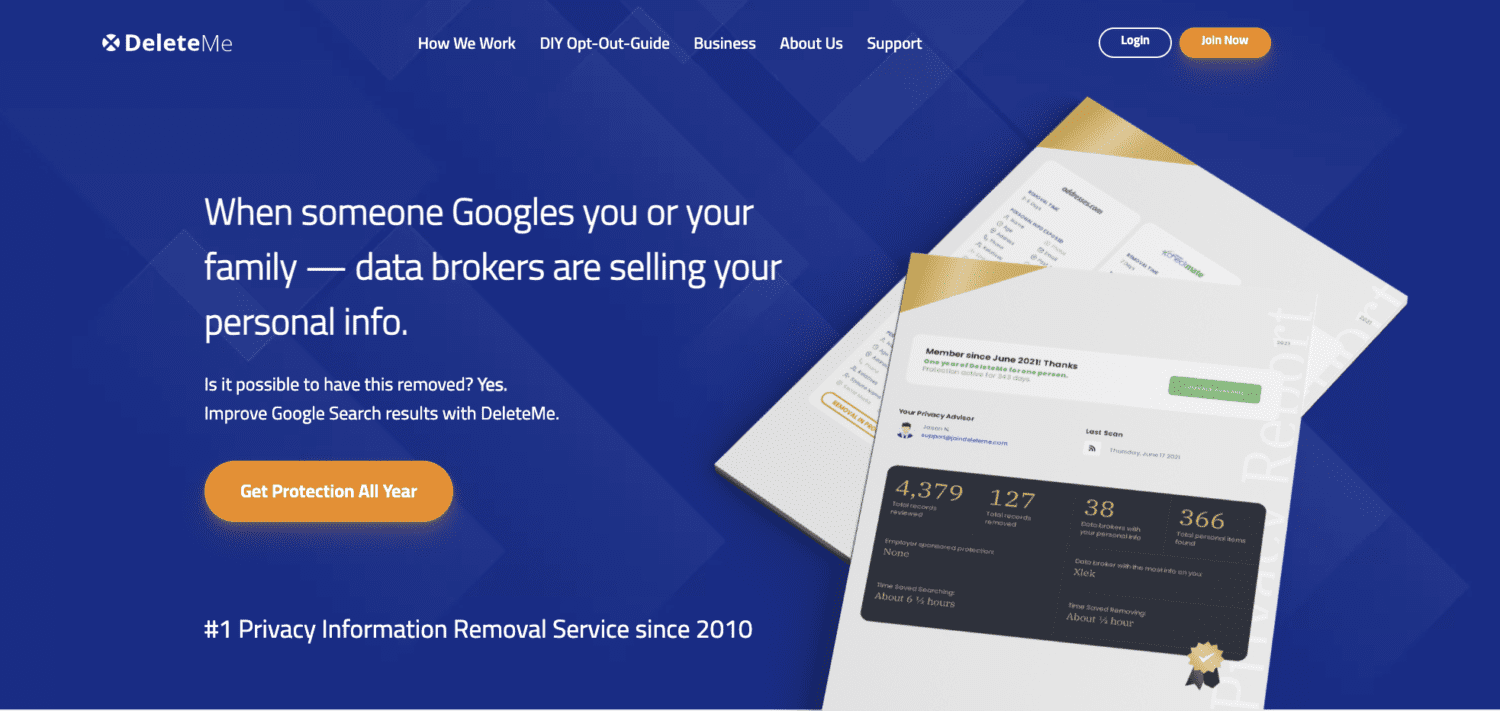I don’t know about you, but I am so sick and tired of seeing deeply personal and identifiable private details about my family online. Despite all that I do to remove myself from the Internet, private stuff pops up once in a while such as my home address or a photo that I made sure was set to private.

Table of Contents:
There’s hope to get your private stuff off the Internet
With so much of our data shared on social media and over the internet in general, it is not hard to imagine how much personal data about you is available for others to find. What’s scarier and harder to imagine, however, is someone showing up at your residence and/or workplace after googling your first and last name to find the exact address.
How to scrub yourself off the web
Though it is nearly impossible to scrub all your data online, it is important to understand what information is available about you to then figure out a manageable strategy to take the most impactful information offline as well as prevent future leakages.
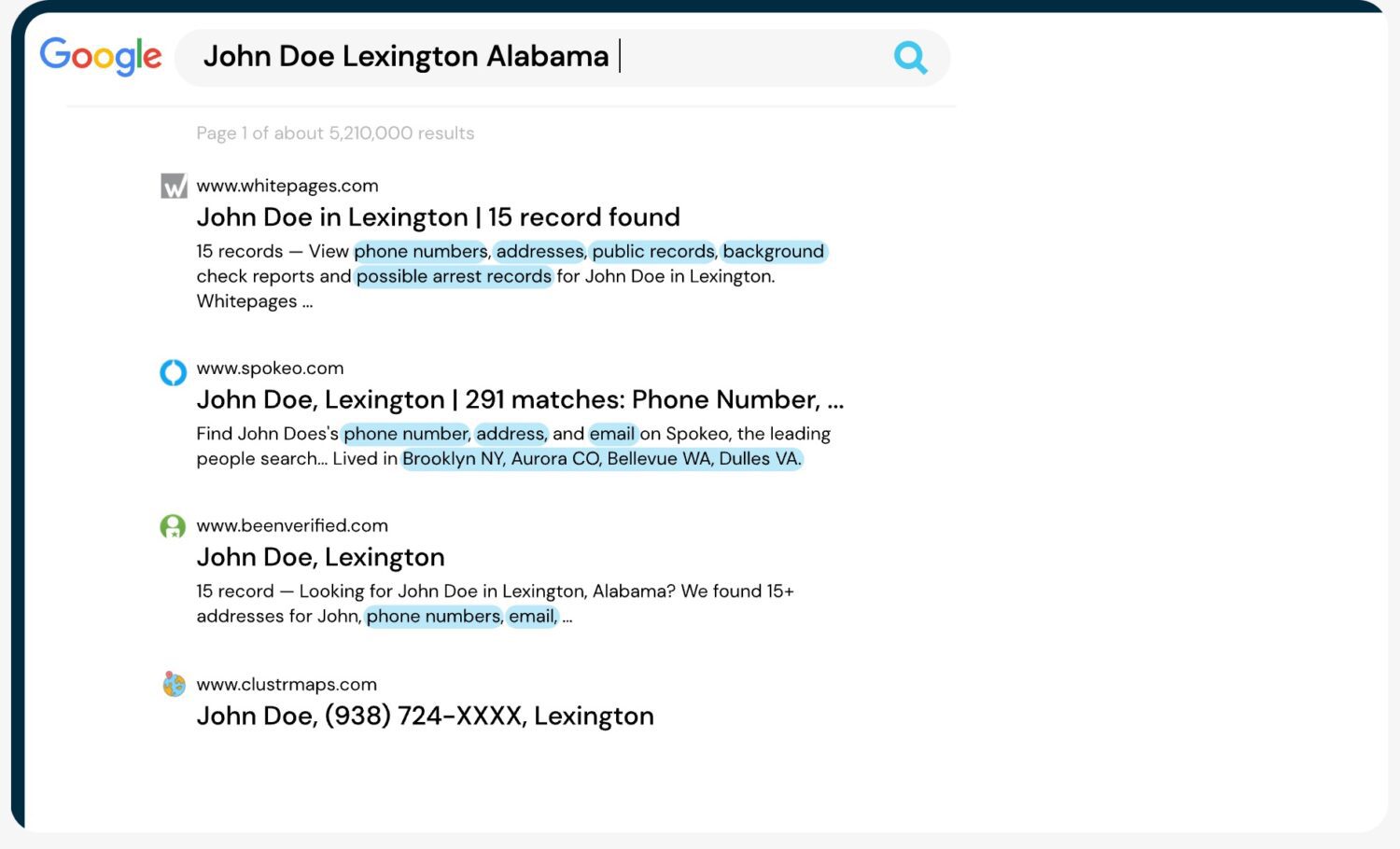
Image credit: OneRep
The primary offender in spilling your personal information online are data broker sites aka “People Search”, which allows you to input the name of any person, often for a fee, and receive their contact information such as phone numbers and addresses; age; birthdate, work history, etc. WebFX reported in 2019 alone that there are more than 4,000 data broker sites collecting data on over 500 million consumers.
That data point alone can make you feel ready to give up before you start. But it is your right to secure your privacy, and increasingly more vital to your security. Instead of focusing on the enormity of the task at hand, below are strategic ways to effectively and efficiently REDUCE the amount of information about you out there.
How much of your private information is already out there?
> Jump down to how to automate the process of removing yourself from the internet.
#1 Google Yourself
When’s the last time you tried to search yourself? Before you launch into a campaign to reach out to all data broker sites, stop to check what and which sites have information about you already online.
Log out of your own Google account then google yourself: search your first and last name on google.com. This is the most accurate way to see how an average user finds information about you via Google. Arguably the largest search engine online, it is the likeliest source most would go to glean information about you.
How much of your private information is already out there?
> Jump down to how to automate the process of removing yourself from the internet.
#2 Make yourself unsearchable
There is data collection from companies and compromises by hackers, but there is also a huge risk if a random or potentially dangerous individual arrives at your doorstep with the information found on Google or other search engines.
It is happening more and more. Because Google and other search engines are continually aggregating information, if you have publicly available social media or website presence, you cannot completely prevent your name from appearing on search results. These, however, are some key ways to make your information less likely to show up when searching your name.
How to change search engine settings
We’re going to focus on Google as it is the largest and most used search engine online.
- Log on to your Google account on your desktop
- On the upper right-hand corner of the page, there should be a dial pad icon
- Click the icon for a drop-down menu
- Click the ‘Account’ icon
- Click ‘Data & Privacy on the left-side menu
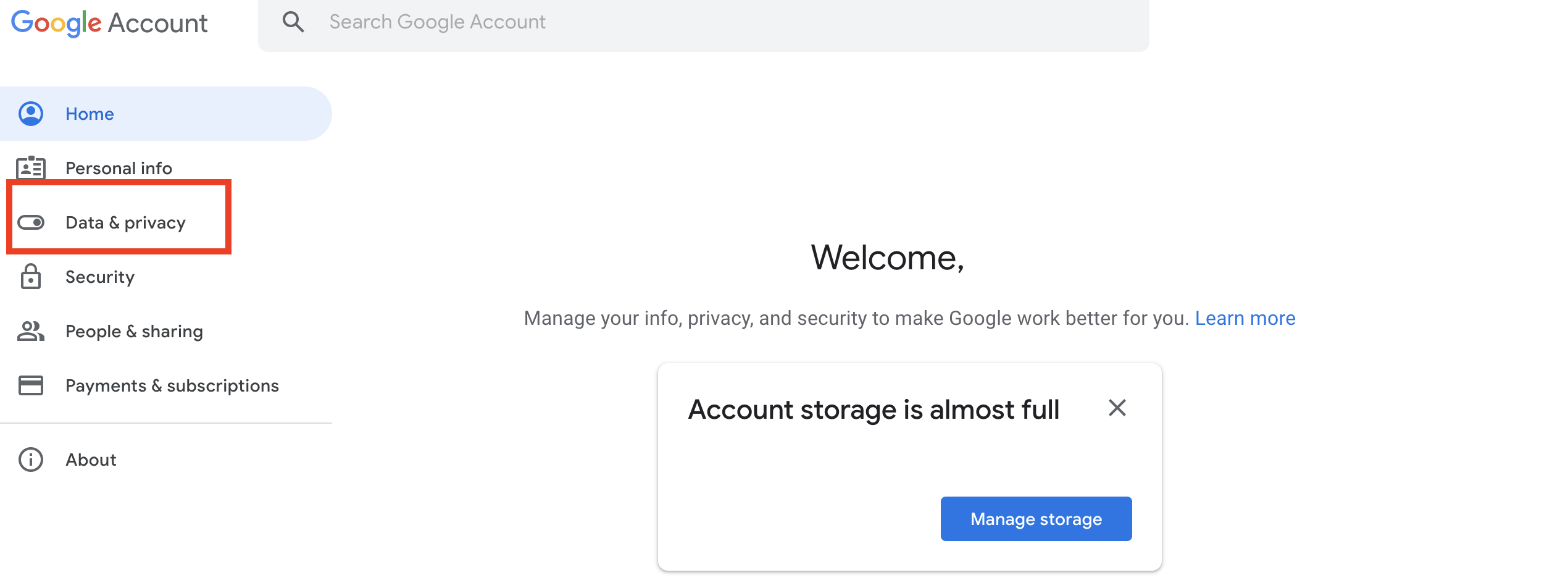
- On the ‘Data & Privacy’ page, scroll down to the ‘History Setting’ options
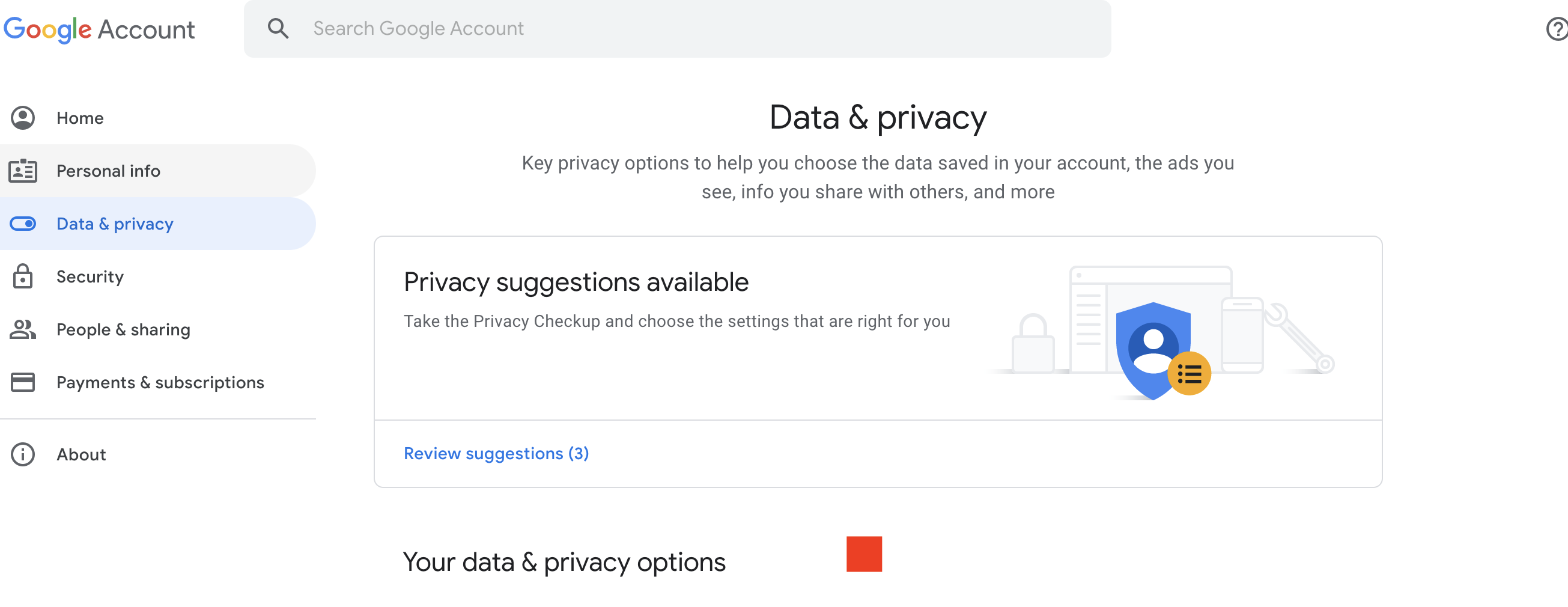
- Under ‘History Settings’, click on ‘Web & App Activity’

- Under ‘Activity Controls’, click ‘turn off’ so it’ll stop aggregating information from your google services and sites. Or if you’d prefer to keep it on, you can ‘turn on’ auto-delete so that it periodically deletes this information. You can repeat these steps for your ‘YouTube History’.
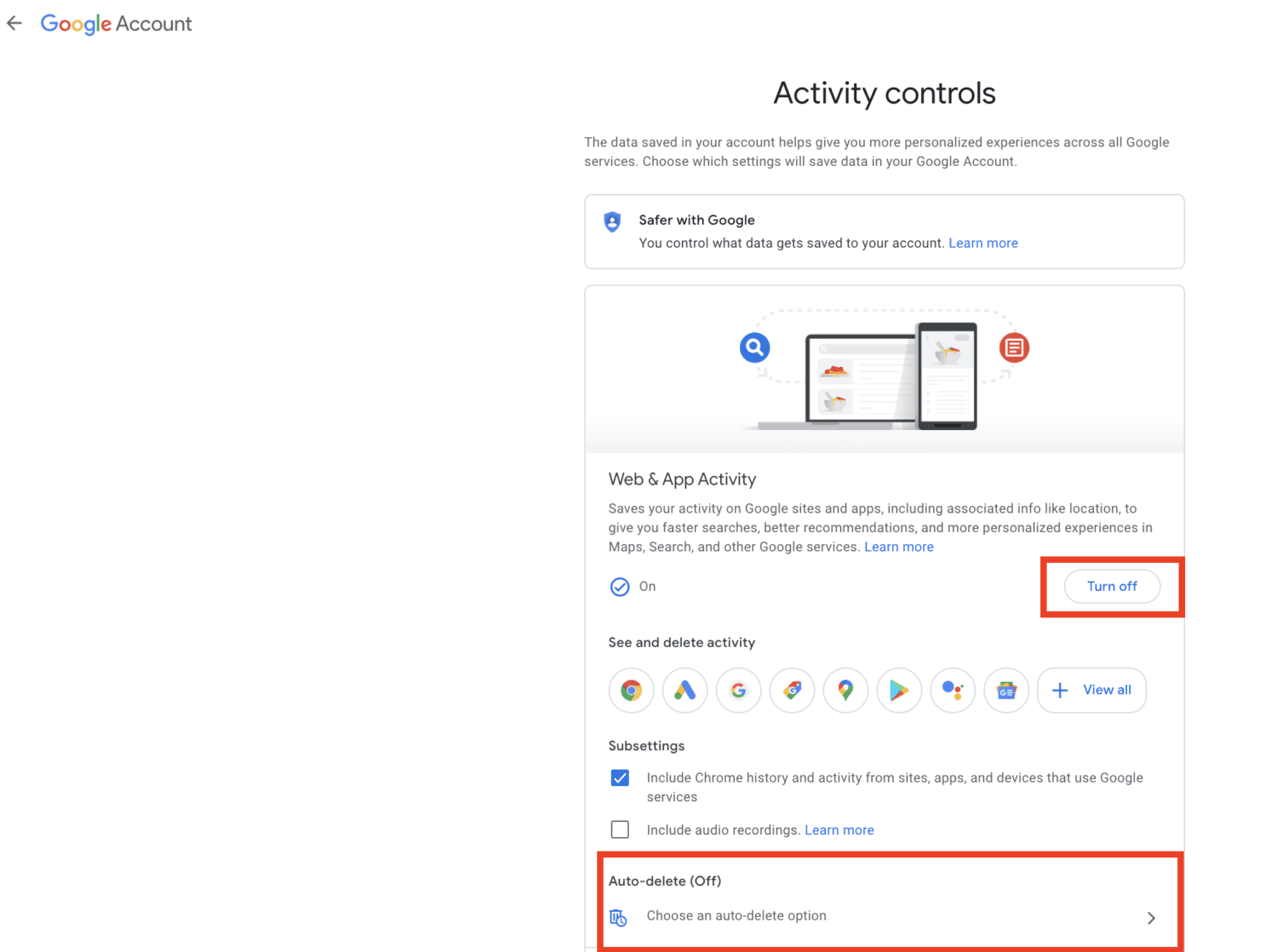
How much of your private information is already out there?
> Jump down to how to automate the process of removing yourself from the internet.
#3 Invest in Removal Services (best outcome)
In addition to the sheer number of data broker sites hocking your data, the unfortunate truth is that many of these sites keep gathering information on you both from public record and online usage even after you’ve had data removed previously. It never stops.
While it is possible for you to go to each site and manually request your information be removed, you’d be doing this non-stop. Unfortunately, there is no regulation when it comes to these data brokers, and just because you remove your data from the web doesn’t mean the data brokers aren’t going to resell it again months from now.
While no service promises to remove all your data from the internet, these top services are great if you want to constantly monitor and automate the process of removing your information off hundreds of sites continually over a longer period of time.
I have found these to be very effective for continual removal. The first time I tried one, everything I did not want to see about myself was gone. Then months later it bubbled back into the crevices of Google. That’s when I learned that subscribing to removal services that constantly scour and remove private data is the way to go.
Top Choice: OneRep
OneRep is our favorite. It has a very clean interface and you will be amazed at how much of your private information will be discovered and ultimately removed. OneRep offers both monthly and annual plans for personal information removal. At the time of publishing, OneRep scans 191 websites.
CyberGuy Exclusive: OneRep starts at $7.49/month for one person on their annual plan, or $13.99/month for your family (up to 6 people) on their monthly plan. Unlike the services mentioned below (both DeleteMe or Kanary), OneRep does offer a 5-day free trial.
To give you a sense of the work it does, take a look at this monthly email I get showing me how many instances of my personal information (“profiles”) it removed and continues to remove a good number of websites:

BrandYourself
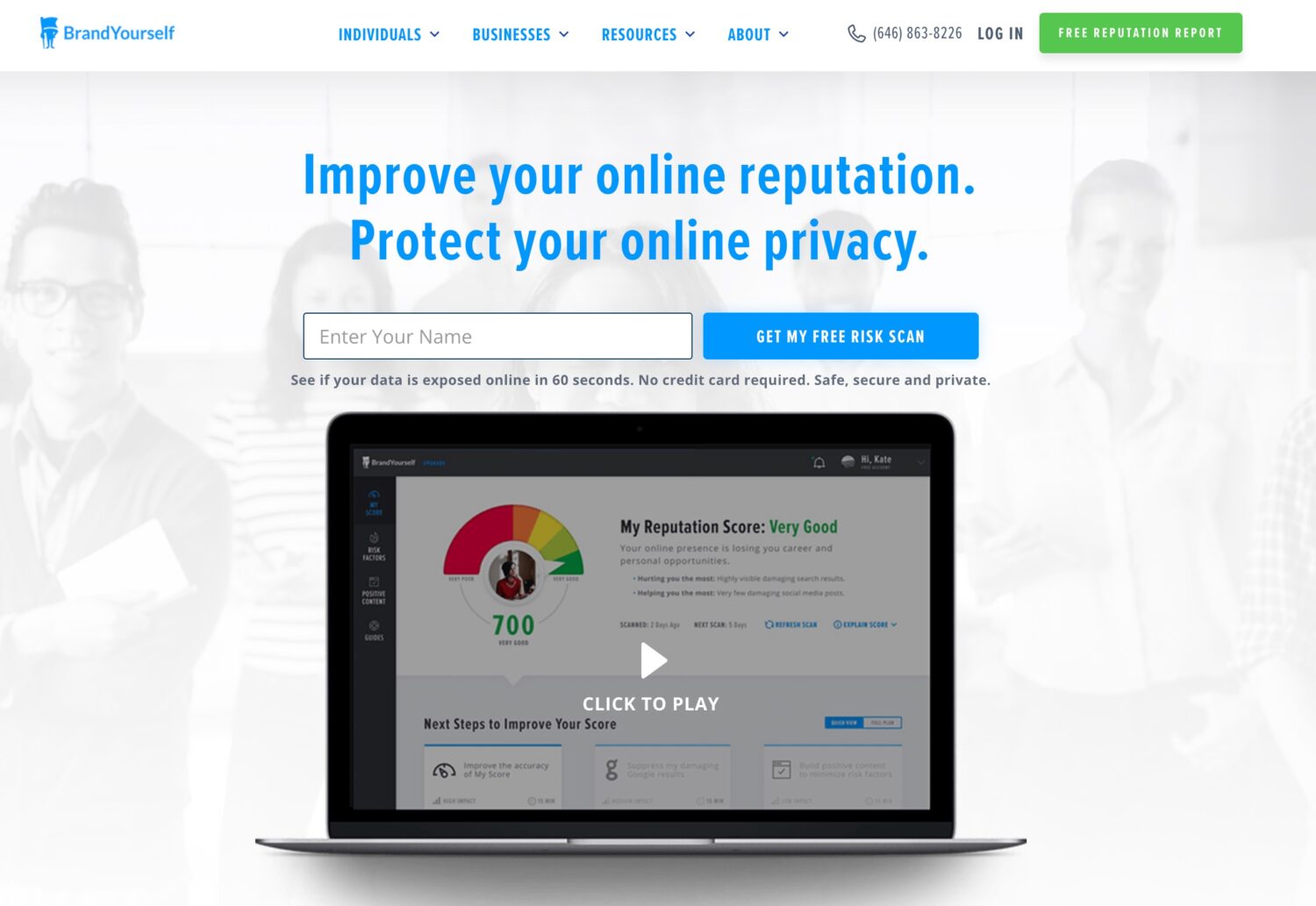
Starting at $49.99/month (billed annually at $299.99), BrandYourself will remove your exposed info from 35+ sites. While this company has a steeper price than the others, they offer a la cart features for finding out if your sensitive information is on the Dark Web ($14.99/year), can improve Google Results to control what people find when they Google you ($44.99/year) and helps you clean up your social media profiles by discovering and deleting any flagged posts and images that could cost your opportunities ($14.99/year).
DeleteMe
Starting at $10.75/monthly (billed annually at $129), the standard plan for one person for 1 year includes removing your information from over 30 data broker sites. In addition to receiving a detailed report in 7 days of sign-up, this annual service scans and removes personal information off websites every 3 months. If you ever find your information on a data broker site not included in your service, you can submit a removal request. DeleteMe will research whether or not it is able to remove your data off that site or not. While DeleteMe is similar to OneRep, its annual plan is more expensive.
Copyright 2023 CyberGuy.com. All rights reserved. CyberGuy.com articles and content may contain affiliate links that earn a commission when purchases are made.
🛍️ SHOPPING GUIDES:
KIDS | MEN | WOMEN | TEENS | PETS |
FOR THOSE WHO LOVE:
COOKING | COFFEE | TOOLS | TRAVEL | WINE |
DEVICES:
LAPTOPS | TABLETS | PRINTERS | DESKTOPS | MONITORS | EARBUDS | HEADPHONES | KINDLES | SOUNDBARS | KINDLES | DRONES |
ACCESSORIES:
CAR | KITCHEN | LAPTOP | KEYBOARDS | PHONE | TRAVEL | KEEP IT COZY |
PERSONAL GIFTS:
PHOTOBOOKS | DIGITAL PHOTO FRAMES |
SECURITY
ANTIVIRUS | VPN | SECURE EMAIL |
CAN'T GO WRONG WITH THESE:





